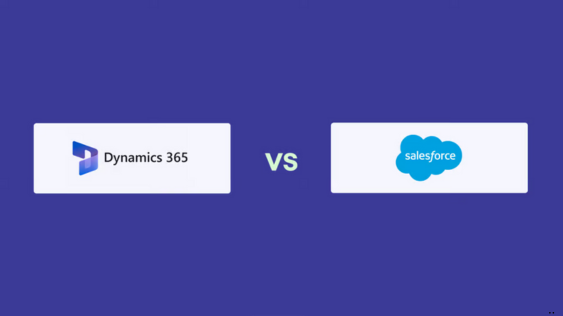When you’re considering a CRM solution for your business, you’ll likely encounter two major players: Microsoft Dynamics CRM and Salesforce. While both offer robust features to streamline your customer relationship management, they’re not created equal. Understanding the key differences between these platforms can greatly impact your decision and, ultimately, your business operations. From integration capabilities to AI features and deployment options, each system brings its own strengths to the table. But which one aligns best with your company’s needs? Let’s explore the three critical areas where these CRM giants diverge.
Integration Capabilities
When it comes to integration capabilities, Salesforce and Microsoft Dynamics CRM are both formidable contenders. However, there are key differences you’ll want to take into account.
Salesforce boasts an impressive ecosystem with over 3,400 third-party apps available through its AppExchange, dwarfing Dynamics 365’s offering of around 1,000 integrations via AppSource. This vast difference reflects Salesforce’s larger market presence and more active developer community.
Both platforms offer API availability, enabling custom integration solutions, but Salesforce’s flexibility in integration often makes it easier to connect with various business solutions.
If you’re already using Microsoft products like PowerBI, Outlook, or Microsoft 365, you’ll find Dynamics 365 integrates seamlessly with these tools, which could be a significant advantage.
Salesforce’s edge in third-party contributions and its robust developer community foster innovative data synchronization options. This can be essential if you’re looking for specific integrations or planning to scale your CRM system.
While both platforms are capable, Salesforce’s extensive integration ecosystem might offer more options for your unique business needs, especially if you require specialized or industry-specific integrations.
AI and Automation Features
In the domain of AI and automation features, both Microsoft Dynamics CRM and Salesforce are pushing boundaries to enhance user experience and productivity.
Dynamics 365 integrates AI tools like natural language processing and sales predictions to improve customer understanding and sales team effectiveness. These built-in AI capabilities increase the speed of business applications across the Microsoft ecosystem, providing enhanced productivity for users.
Salesforce, on the other hand, offers Einstein, an AI-driven tool that leverages machine learning to analyze selling habits and optimize marketing strategies. Einstein GPT helps generate customized content and delivers predictive analytics for improving customer interactions.
However, it’s essential to recognize that Einstein is an add-on feature, incurring additional costs.
Both platforms utilize machine learning to enhance user experiences, but Salesforce continuously innovates with AI tools specifically tailored for sales and marketing needs.
While Dynamics 365 offers integrated AI capabilities out of the box, Salesforce’s AI features are more specialized. Your choice between the two may depend on your specific requirements for automation features and the level of AI integration you need in your CRM solution.
Deployment and Customization Options
Both Microsoft Dynamics CRM and Salesforce offer robust deployment and customization options, but they take different approaches. Dynamics 365 provides flexibility with both cloud and on-premises deployment options, catering to various IT infrastructure preferences.
In contrast, Salesforce operates exclusively as a cloud-based solution, which may limit options for some businesses.
When it comes to customization, Dynamics 365 excels in its integration with the Microsoft ecosystem, making it ideal for organizations already invested in Microsoft products. It allows for extensive tailoring to meet specific business needs.
Salesforce, on the other hand, adopts a modular approach, enabling users to select and customize specific applications like Sales Cloud or Service Cloud.
Both platforms support app marketplaces, enhancing their customization capabilities. Salesforce’s AppExchange boasts over 3,400 apps, while Dynamics 365’s AppSource offers around 1,000 integrations.
However, Dynamics 365’s extensive customization options may lead to higher initial costs, especially when tailoring reporting and other features. Salesforce’s customization is often seen as more straightforward but can result in higher long-term expenses due to add-ons.
Ultimately, your choice depends on your specific business requirements and existing IT infrastructure.























